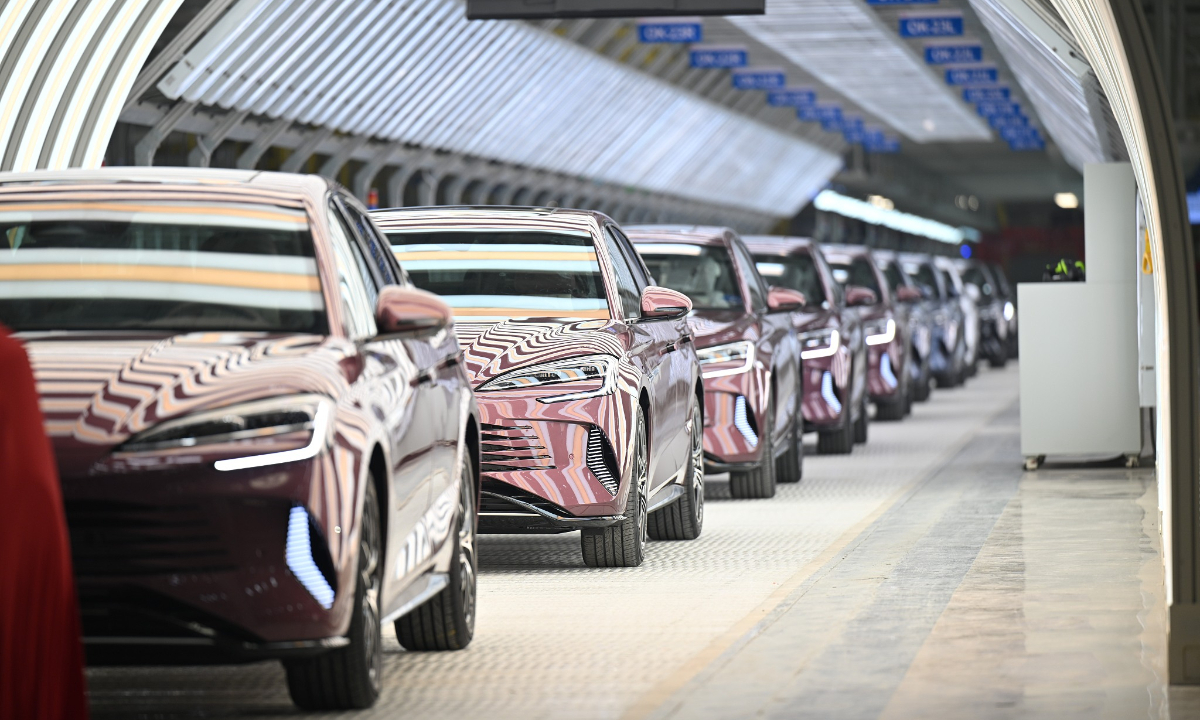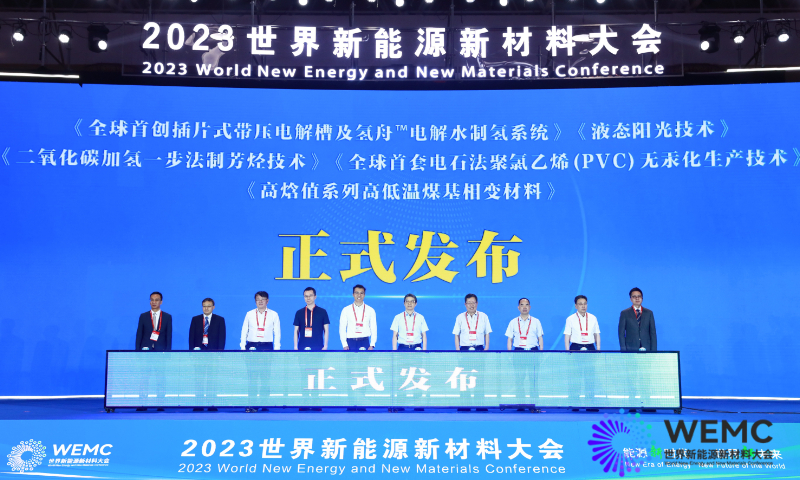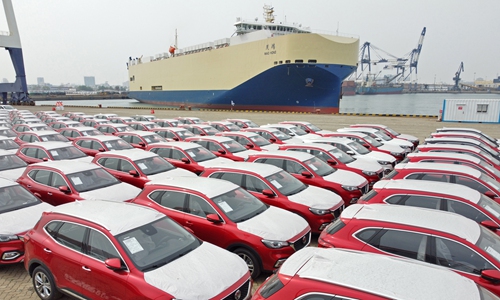
EV Photo:VCG
Stellantis NV, an automaker based in the Netherlands, announced on Thursday that it plans to invest 1.5 billion euros ($1.58 billion) to acquire approximately 20 percent of China's electric vehicle (EV) start-up Leapmotor, joining several other European automakers in strengthening cooperation with Chinese EV makers this year.
Observers said that European enterprises' investment in China's EV firms underscores their acknowledgement of China's smart EV technologies and dividends brought about by the world's second-largest consumer market, whereas China's earnest implementation of its opening-up commitment is in stark contrast to the West's growing protectionism.
China will not close its door to the world, and it will only become more and more open. Protectionist moves will boomerang, and practices of decoupling and supply chain disruption are neither feasible nor sustainable, said Chinese Foreign Ministry spokesperson Mao Ning at a press conference on Thursday.
According to a press release Leapmotor sent to the Global Times, the two companies will also set up a joint venture with Stellantis taking a 51 percent share and Leapmotor 49 percent. The new company will gain exclusive rights for the export, sale and manufacturing of Leapmotor products outside Greater China, it said, noting that the joint venture expects to begin shipments in the second half of 2024.
In August, the Chinese EV start-up unveiled a new platform named "Four Leaf Clover" that has an integrated computing platform that is capable of controlling all intelligent functions including a car's autonomous driving and smart cockpit functions, the Nanfang Daily reported.
Leapmotor CEO Zhu Jiangming said that the company was in advanced talks with two foreign companies about technology licensing agreements so they could use Leapmotor's platform, it said.
In addition to Stellantis, Germany's Volkswagen Group invested approximately $700 million in China's electric carmaker XPENG Motors and holds about 4.99 percent of its shares, the two companies announced on July 26.
With this cooperation, Volkswagen is strengthening its position in the Chinese automotive market, read a statement by the company.
"European companies' high-profile investment in China's EV industry reflects their recognition of China's smart EV technologies and opportunities brought by the huge market. Increased cooperation with China will also accelerate EU's green transition," Cui Dongshu, secretary general of China Passenger Car Association, told the Global Times on Thursday.
Yang Chengyu, an associate research fellow at the Institute of European Studies of the Chinese Academy of Social Sciences, said these companies' actions also reflect disagreement between businesses and politicians in the continent, as businesses seek profits in cooperating with China while some EU politicians aim to gain political benefits by taking a hard stance on China.
Affected by the US economic "decoupling" push from China, some politicians in the EU have called for "de-risking" from China in recent years. On October 4, the European Commission launched an anti-subsidy probe into Chinese EVs.
The EU's move has drawn strong criticism from industry insiders, who argue that the investigation is groundless and an act of protectionism that will only disrupt normal cooperation between China and the EU.
The EU should take an objective view of the development of China's EV industry, whose rapid growth is based on the competitive advantage of the country's complete industry chains rather than national subsidies, Cui said.
"Allowing large-scale foreign investment in leading Chinese EV firms underlines China's firm commitment to opening up, the building of an open world economy and multilateralism," Yang told the Global Times on Thursday.
The EU should take China as an example, and take concrete actions to boost bilateral economic and trade relations that are conducive to tackle the bloc's challenges and contribute to Europe's economic growth, he said.


